Creating Compliance: How a Data Catalog Can Help You Meet Regulations
Regulatory compliance can be a daunting task for any business, but it doesn't have to be. With the help of a data catalog, organizations can rapidly and easily meet their regulatory requirements while improving security and reducing risks. In this blog post, we'll explore how a data catalog can help to assess these regulations, from quickly finding and securing data to streamlining audit and compliance processes. By the end of this article, you should have an understanding of how data catalogs aid businesses stay compliant while providing other benefits as well.
How Data Catalogs Help with Regulatory Compliance
Regulatory compliance is an essential part of any business, especially those that handle large amounts of sensitive data. To comply with regulations such as GDPR, CCPA, and others, companies must implement controls to protect customer information and ensure their security measures are up-to-date. A data catalog is essential for organizations to meet these requirements by making it possible to quickly identify, classify, and secure their data.
Explaining Data Catalogs and Their Benefits
A data catalog is a centralized repository for all of the organization's structured and unstructured data. It helps users quickly find relevant information from multiple sources in one place. A good data catalog should also provide access control capabilities to ensure that only authorized personnel can view specific pieces of sensitive information.
Additionally, it should provide automated reporting capabilities to monitor the usage of the system on a regular basis so organizations can stay compliant with regulations such as GDPR or CCPA.
Quickly Find and Secure Data
Data catalogs allow organizations to quickly and easily discover, organize, and classify data across the entire enterprise. Through machine learning algorithms, these data catalogs can automatically detect new or changed data sources and make them discoverable intuitively for users. Additionally, administrators have the ability to manually add new data sources or modify existing metadata tags on the stored information. This combination of automated discovery along with manual tagging allows organizations to build a comprehensive inventory of all their data assets while also providing insights into how they are being used.
Secure Data with Data Governance
Data Governance is critical for any organization that wants to ensure its regulatory compliance requirements are met. By enforcing policies such as access control and encryption at rest, organizations can reduce potential risks associated with unauthorized access or malicious activity targeting confidential information stored in their databases or other storage systems.
Additionally, robust data governance strategies help mitigate threats such as ransomware attacks by limiting user privileges assigned to specific files or folders based on predefined criteria set by the administrator(s).
Reduce Risks with Access Control
The use of access control protocols helps ensure that only authorized members are able to view sensitive information within an organization's networks or systems by assigning permission levels based on user roles in the company hierarchy.
Leveraging role-based access controls (RBAC) enabled through a comprehensive identity management system paired with a well-defined set of policies regarding who can view what type of data, ensures that no unauthorized entity has access to confidential material stored in any system owned by the organization—an essential requirement for maintaining regulatory compliance standards set by applicable laws and regulations worldwide.
Streamline Audit and Other Compliance Processes
To ensure that data assets are safe, and appropriate use of the data is being met, auditing is an essential part of regulatory compliance. A data catalog can automate this process by providing a centralized single source of truth for all pertinent audit information with timely updates. This allows organizations to quickly identify and resolve any issues related to compliance, while also proactively identifying potential problems before they become serious concerns.
Improve Security by Identifying Data Usage.
Data Usage tracking is another key component of maintaining regulatory compliance, as it helps to ensure that only authorized personnel have access to sensitive data assets. A data catalog can monitor who has access to specific datasets and detect any suspicious or unauthorized activities in real-time. This provides an additional layer of security that can help reduce potential risks associated with non-compliance and improve the overall security posture for the organization's databases.
Ensure Compliance with Automated Reporting.
The final piece of streamlining audit and compliance processes is automated reporting capabilities offered by a data catalog system. With automated reports, organizations are able to easily track progress on their regulatory compliance efforts over time while generating detailed reports that cover all aspects of the organization’s operations, including performance metrics, user activity logs, security protocols, etc., (as required by various regulations such as GDPR or HIPAA). These reports are invaluable when it comes to demonstrating an ongoing commitment to meeting regulatory requirements in order to maintain compliance with applicable laws and industry standards.
Conclusion
Investing in a data catalog is an invaluable tool for organizations looking to ensure compliance with regulatory requirements. Data catalogs provide a comprehensive view of the organization's data, enabling them to discover and organize it quickly and easily while securing it with appropriate access control and governance policies. Additionally, they can streamline audit processes by automating auditing procedures and ensuring compliance through automated reporting. With the help of a data catalog, organizations can successfully navigate the complex world of compliance regulations.
Make sure to let regulatory compliance be a manageable task for your business.
Invest in a data catalog today and enjoy the benefits of improved security and reduced risks while meeting your regulatory requirements. With a data catalog, you can quickly find and secure your data, implement governance policies, reduce risks with access control, and streamline your audit and compliance processes.
Don't wait any longer, discover Arkon Data Platform now and take control of your compliance needs.



